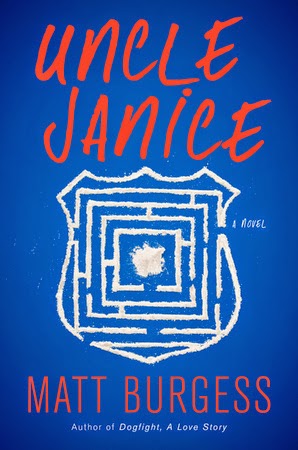Kelli Stanley is a critically-acclaimed, multiple award-winning author of crime fiction (novels and short stories). She makes her home in Dashiell Hammett’s San Francisco, a city she loves to write about.

Stanley is best known for the Miranda Corbie series of historical noir novels and short stories set in 1940 San Francisco. The first novel of the series,
City of Dragons, introduced Miranda, the unforgettable protagonist
Library Journal calls "one of crime’s most arresting heroines.”
City of Dragons won the Macavity Award for Best Historical Novel, and was nominated for the
Los Angeles Times Book Prize, a Shamus Award, a Bruce Alexander Award and an RT Book Reviews Award, was a Mystery Guild selection of the month, and placed on many “best of the year” lists.
City of Secrets, the sequel to
City of Dragons, was released by Thomas Dunne/Minotaur to great critical acclaim, was nominated for a number of awards and won the Golden Nugget for best mystery set in California.
Stanley's latest novel in the series is
City of Ghosts.
From the author's Q & A at Evette Davis's blog:
I noticed that some reviewers disliked [Miranda Corbie's] smoking, but it’s a very realistic habit for the time. When you work on your characters do you ever worry about “going too far” or making them unlikeable?
Here’s the thing: I write psychological realism, not two-dimensional shadow plays. Miranda is complex: like most people, what is on the surface can be very different than what is under it. Unfortunately, a segment of our society reads only to see what they want to see, and that’s what entertains them … a reflection of their own biases and limitations. They don’t want to be challenged; they don’t want realistic protagonists; they want to skim the surface and find comfort and affirmation for their own specific set of mores. For such readers, Miranda could be termed “unlikable” – though I would be willing to bet that, for the same readers, a male protagonist with identical characteristics would not be so considered.
She drinks—she smokes—she uses profanity. Like Ava Gardner (as noted in a recently published memoir), Miranda swears like the proverbial sailor partly in order to keep off “the gaze”—unwanted sexual attention from the various men she encounters in life and on her cases.
She is also my attempt to write a “femme fatale” as a hardboiled protagonist, thus turning noir’s misogynistic conventions inside out.
For the record, I write what I write and live up to my own literary and personal integrity. I try to make people aware of the nature of my books by posting reviews, synopses, questions, interviews, videos, et. al. on my website. If someone wants to read and live in a G-rated world, more power to them—just don’t read my work.
Miranda Corbie is a damaged soul, a broken idealist, a woman who is trying to find something to live for. Her actions betray a compassionate heart empathetic to the plight of the underdog and the downtrodden. What’s so...[read on]
Learn more about the novel and author at
Kelli Stanley's website.
Coffee with a Canine: Kelli Stanley & Bertie.
The Page 69 Test: City of Dragons.
The Page 69 Test: City of Secrets.
The Page 69 Test: City of Ghosts.
My Book, The Movie: City of Ghosts.
--Marshal Zeringue
 Richard Price's eighth novel, a New York cop story called The Whites, is being published under a transparent pen name: “Richard Price writing as Harry Brandt.”
Richard Price's eighth novel, a New York cop story called The Whites, is being published under a transparent pen name: “Richard Price writing as Harry Brandt.”





















